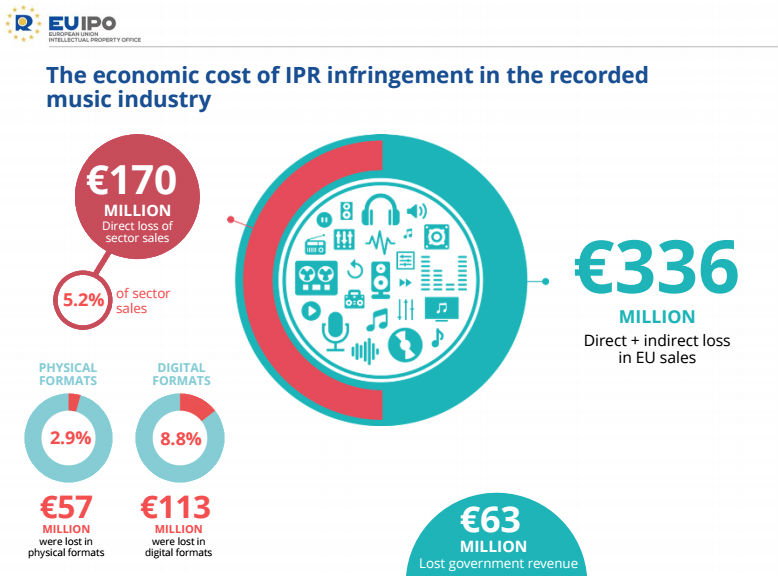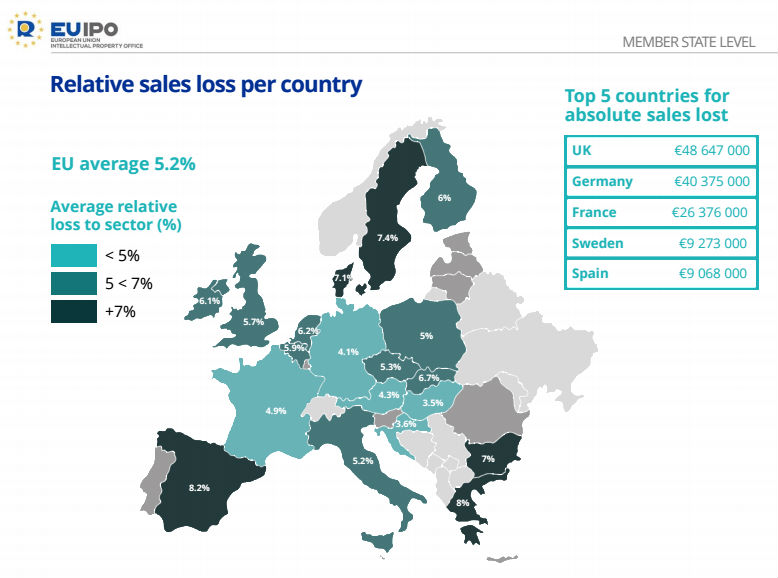For more than a decade researchers have been looking into the effects of online music piracy on the revenues of the record industry, with mixed results.
Both positive or negative effects have been reported, often varying based on the type of artist, music genre and media, among other variables.
That said, research has more often found that piracy hurts overall music sales, and an extensive new report from the European Union Intellectual Property Office (EUIPO) confirms this trend.
The new study uses an elaborate model to quantify the effect of piracy on music sales, which it puts at 5.2% for the EU as a whole in 2014. This means that piracy resulted in €170 million in lost revenue across the EU.
The effects on digital sales are the most pronounced, €113 million compared to €57 million for physical products.
In addition to the direct effect on the music industry, there is also a secondary loss of €166 million in other sectors, and a €63 million loss in government revenue through direct and indirect taxes. The study doesn’t look at any positive effects, such as a possible increase in media player sales.
Interestingly, the estimated piracy losses are not equal across the EU. In absolute numbers they are the highest in the UK, with €48.6 in direct losses. This makes sense as it’s one of the largest music markets.
Relatively speaking the piracy effects are the most pronounced in Spain and Greece, with losses of 8.2% and 8% respectively. Croatia and Hungary are least affected, with both under 4%.
It is worth noting that the reported lost sales are a the expected additional revenue if people wouldn’t have pirated the music. It doesn’t count every pirated track as a lost sale, nor does it estimate the potential revenue if piracy wouldn’t exist at all.
Commenting on the results, EUIPO’s Executive Director António Campinos says that the current findings offer additional evidence in the ongoing piracy debate.
“The question of whether piracy reduces or increases sales of recorded music has been the subject of many studies with contradictory results,” he says.
“Our study’s results are in line with the prevailing consensus and find that piracy reduces the revenue of legitimate industry in both digital and physical formats,” Campinos adds.
Interestingly, the findings presented this week contradict an earlier EU study which revealed that online piracy doesn’t hurt digital music revenues. So, whether this week’s study will be the end of the ongoing debate about the effects of piracy remains to be seen.









